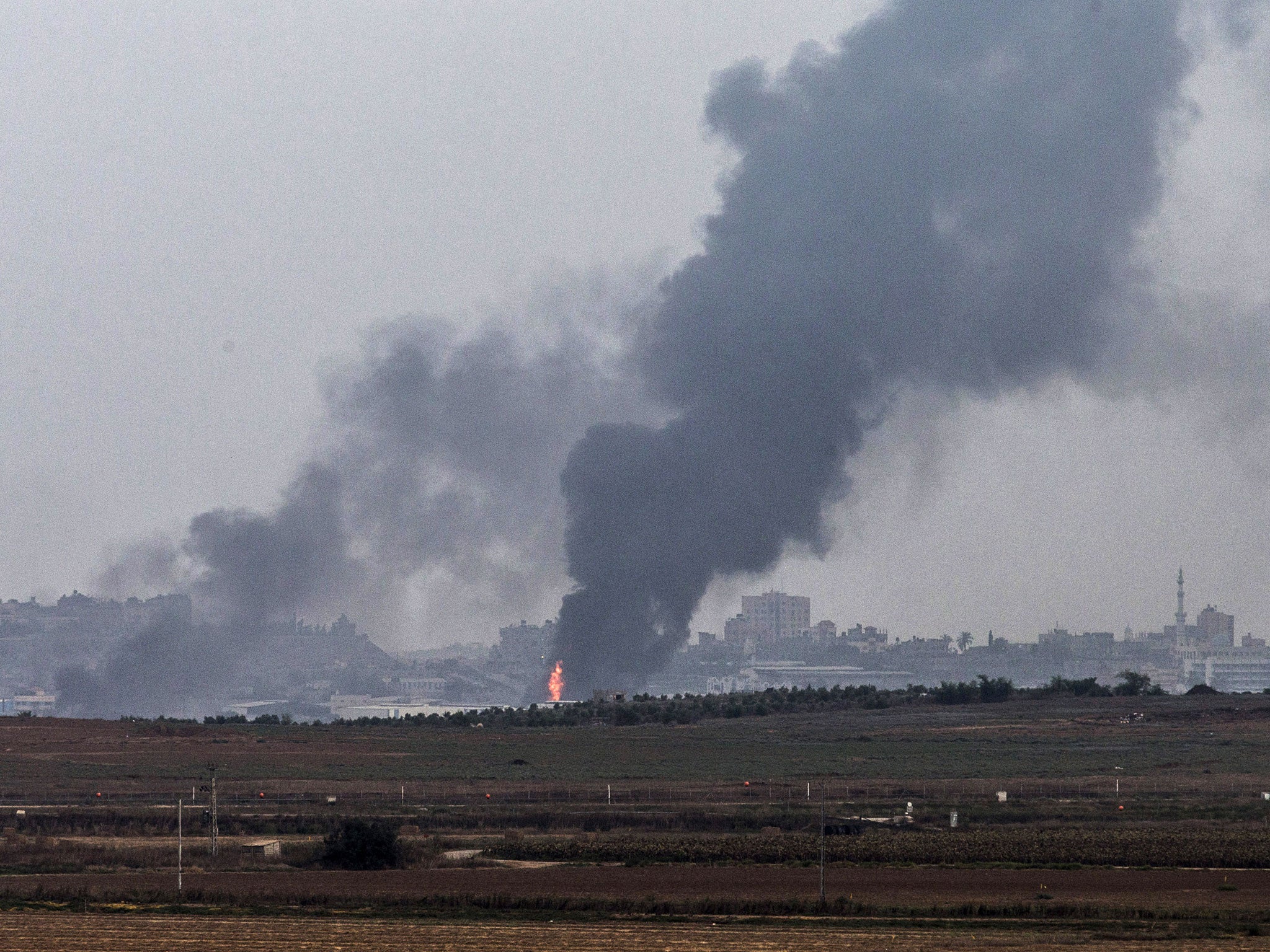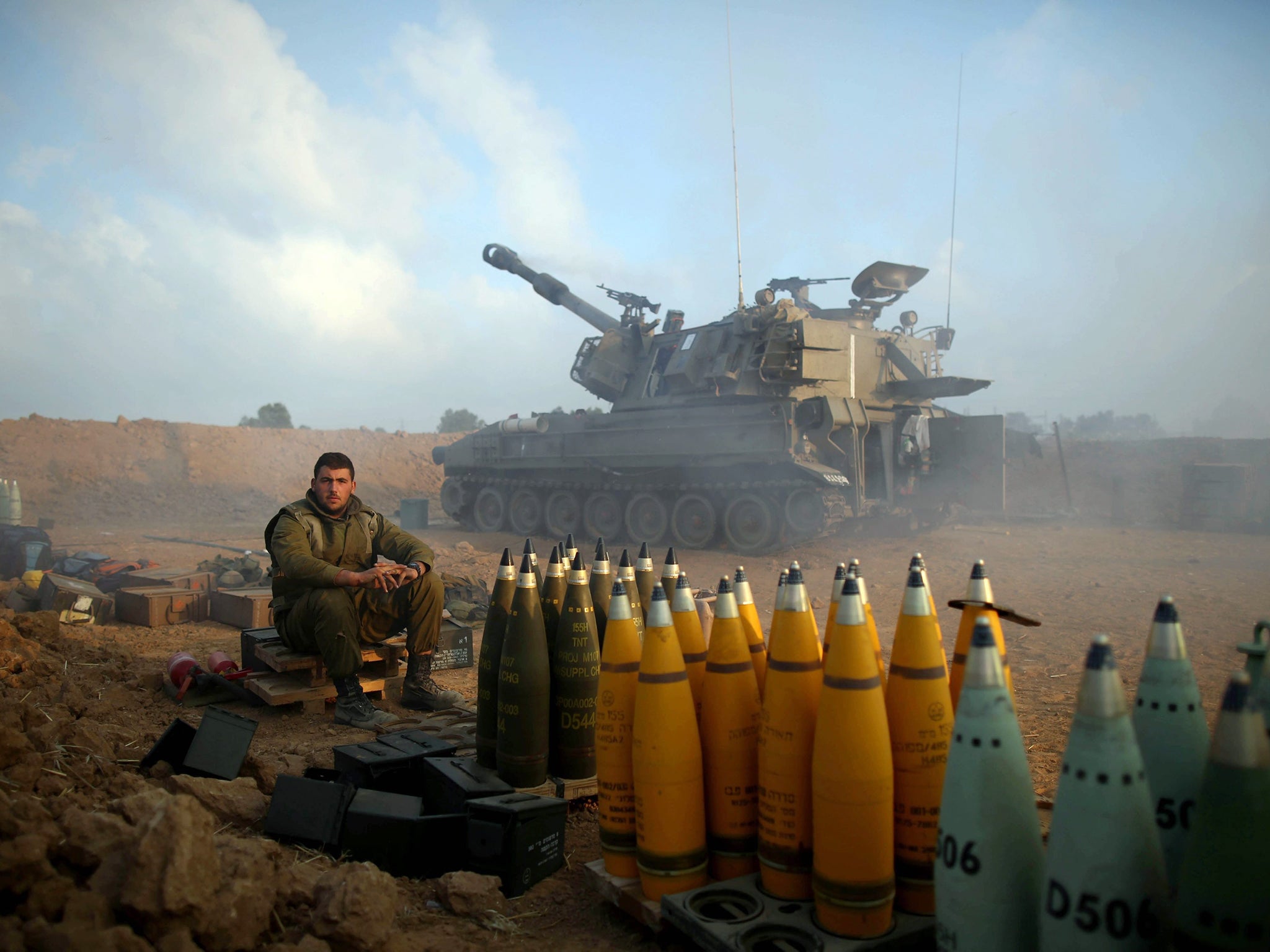Israel-Gaza conflict: Israeli bombardment continues as Ban Ki-moon tells Benjamin Netanyahu 'stop fighting, start talking'
More than 600 Palestinians have now been killed as the Israeli offensive entered its third week

Your support helps us to tell the story
From reproductive rights to climate change to Big Tech, The Independent is on the ground when the story is developing. Whether it's investigating the financials of Elon Musk's pro-Trump PAC or producing our latest documentary, 'The A Word', which shines a light on the American women fighting for reproductive rights, we know how important it is to parse out the facts from the messaging.
At such a critical moment in US history, we need reporters on the ground. Your donation allows us to keep sending journalists to speak to both sides of the story.
The Independent is trusted by Americans across the entire political spectrum. And unlike many other quality news outlets, we choose not to lock Americans out of our reporting and analysis with paywalls. We believe quality journalism should be available to everyone, paid for by those who can afford it.
Your support makes all the difference.Israel continued to bombard Gaza with air strikes today even as the UN Secretary-General Ban Ki-moon appeared in a joint press conference with Benjamin Netanyahu to call for an immediate ceasefire.
Mr Ban said that he addressed Israel "with a heavy heart", because "too many Palestinian and Israeli mothers are burying their children".
But in response to his demand for both sides to "stop fighting, start talking", the Israeli Prime Minister said his country would continue to defend itself "as is its right".
Mr Netanyahu told Mr Ban that Hamas had "no grievance, except the fact that we exist", and compared the militant group to Isis in Syria and Iraq, Hezbollah in Lebanon and Boko Haram in western Africa.
The rhetoric from each side appeared to bring the conflict no closer to a halt, and came after Israel's most pacifist cabinet minister, the justice secretary Tzipi Livni, admitted: "I see no light at the end of the tunnel."
From Egypt, the US Secretary of State John Kerry urged Hamas to come to the negotiating table in Cairo and accept the offer of a truce proposal.
"Hamas has a fundamental choice to make and it is a choice that will have a profound impact for the people of Gaza," Mr Kerry said at a news conference with his Egyptian counterpart Sameh Shukri.
As the conflict entered its third week today, the Israeli military bombed at least another 70 targets across the Gaza Strip, bringing the Palestinian death toll to 609, the health ministry reported.
The UN office of humanitarian affairs estimates that at least three quarters of those killed were civilians, including up to 100 children.

On the Israeli side, the death of a soldier in fighting in southern Gaza on Tuesday brought the number of military casualties to 27. Two Israeli civilians have also been killed.
The violence also unusually spilled over into the nearby occupied West Bank, where doctors said a Palestinian man was shot dead by police during a protest involving stone-throwing. An Israeli was also shot and seriously wounded by a Palestinian.
The Israeli Defence Forces (IDF) confirmed today that a soldier had also gone "missing" during fighting in Gaza, after Hamas claimed they had "kidnapped" Sergeant Oron Shaul.
Army officials said that while they suspect Sgt Shaul was killed by a direct hit on a vehicle he and six others were travelling in on 20 July, they are yet to recover his body.
With the fatalities this week, the Israeli military has now lost more soldiers than in any campaign since the 2006 war with Lebanon.
Among the facilities hit overnight were three homes, including one where three women from the same family perished, according to Gaza health official Ashraf al-Kidra.
Another home destroyed in an air strike was reported to have housed a German-Palestinian family, all seven of home were killed.
A German foreign ministry spokesperson said that "based on multiple concurring indications, we understand that the family lost their lives".
The overnight bombardment also included the destruction of five mosques and a sports complex in Gaza, though these attacks were not believed to have caused any casualties.
As the violence continues to escalate, prospects for a truce remain elusive. Mr Ban appeared to join the US and Egypt in calling for an unconditional ceasefire, to be followed by talks on a possible new border arrangement for Gaza.
But Hamas, with some support from Qatar and Turkey, wants guarantees on lifting the blockade on its borders before halting fire. The Islamic militant group has no faith in mediation by Egypt's rulers, who deposed a Hamas-friendly government in Cairo a year ago and tightened restrictions on Gaza — to the point of driving Hamas into its worst financial crisis since its founding in 1987.
The top Hamas leader in Gaza, Ismail Haniyeh, said on Monday that Gaza's 1.7 million people share Hamas' goal of forcing Israel and Egypt to lift the blockade.
"We cannot go back to the silent death [of the blockade]", he said. "Gaza has decided to end the blockade by its blood and by its courage."
Join our commenting forum
Join thought-provoking conversations, follow other Independent readers and see their replies
Comments